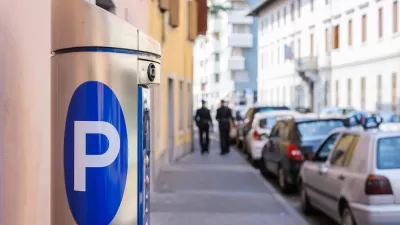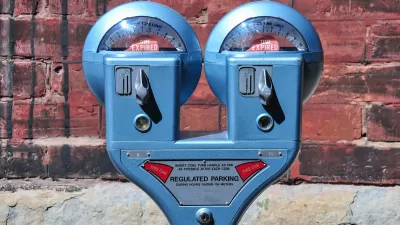This report explores strategies for efficient and equitable parking management with an emphasis on pricing. These strategies enable cities to reallocate space for bus lanes, bicycle lanes, wider sidewalks, and pickup zones, and generate revenue.

Rapid motorization has been a global trend in recent decades and has presented troubling consequences, such as air and noise pollution, traffic-related injuries and deaths, and inequity. As vehicle use increases, so does demand for storing vehicles, both for short-term stays on the street near drivers’ destinations and longer-term stays in off-street lots and garages. Managing and pricing parking is therefore critical to ensure equitable use of public space among high-volume, low-polluting transport modes like public transport, cycling, and walking.
This report explores strategies for efficient and equitable parking management with an emphasis on pricing. Employing these strategies will enable cities to reallocate space for bus lanes, bicycle lanes, wider sidewalks, and flexible pickup zones, and the revenue from pricing parking can help fund these improvements. High-quality public transport, cycling, and walking infrastructure benefits users of these modes as well as drivers by reducing congestion as demand shifts away from driving.
Cities that take action to address long-standing parking management issues may now be able to shift some of the increased demand for vehicles expected in the aftermath of the pandemic to other modes.
High-quality public transport, cycling, and walking infrastructure benefits users of these modes as well as drivers by reducing congestion as demand shifts away from driving.
More efficient parking management and pricing enables cities to prioritize valuable urban space for people and local businesses instead of cars, resulting in more efficient, equitable, healthy communities.
FULL STORY: On-Street Parking Pricing: A Guide To Management, Enforcement, And Evaluation

Planetizen Federal Action Tracker
A weekly monitor of how Trump’s orders and actions are impacting planners and planning in America.

Maui's Vacation Rental Debate Turns Ugly
Verbal attacks, misinformation campaigns and fistfights plague a high-stakes debate to convert thousands of vacation rentals into long-term housing.

San Francisco Suspends Traffic Calming Amidst Record Deaths
Citing “a challenging fiscal landscape,” the city will cease the program on the heels of 42 traffic deaths, including 24 pedestrians.

Amtrak Rolls Out New Orleans to Alabama “Mardi Gras” Train
The new service will operate morning and evening departures between Mobile and New Orleans.

The Subversive Car-Free Guide to Trump's Great American Road Trip
Car-free ways to access Chicagoland’s best tourist attractions.

San Antonio and Austin are Fusing Into one Massive Megaregion
The region spanning the two central Texas cities is growing fast, posing challenges for local infrastructure and water supplies.
Urban Design for Planners 1: Software Tools
This six-course series explores essential urban design concepts using open source software and equips planners with the tools they need to participate fully in the urban design process.
Planning for Universal Design
Learn the tools for implementing Universal Design in planning regulations.
Heyer Gruel & Associates PA
JM Goldson LLC
Custer County Colorado
City of Camden Redevelopment Agency
City of Astoria
Transportation Research & Education Center (TREC) at Portland State University
Jefferson Parish Government
Camden Redevelopment Agency
City of Claremont





























